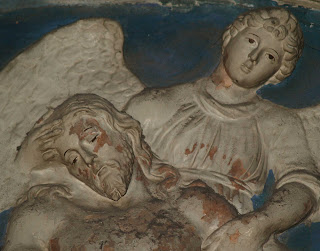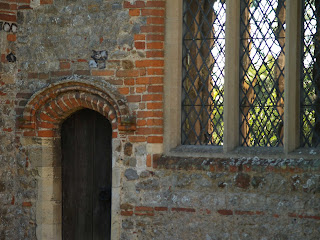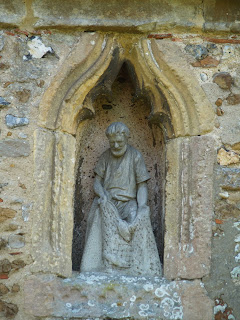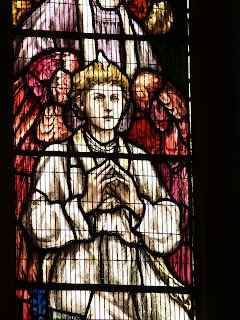I’m having a lot of conversations (some of them in real time physically 
1. What is church? The church is certainly not the building; nor is it the institution called ‘The Church of England’ (or any other denomination), although it is much less of a mistake to think that than to think that the church is some ethereal, intangible entity (see next point). To my mind, the church is where baptised disciples gather in the name of Christ to be renewed and fed; it is also what those disciples do once they have been renewed and fed. It is the tuning fork which allows people to play their instruments well – separately and together. It is where the rough edges are worn off the immature personality, where discipleship is put into effect, where we show just how serious a disciple we are prepared to be. It is where our saltiness is scrutinised; it is where the world is challenged; it is where the kingdom is born. This is not and cannot be a solitary endeavour. It is of necessity communal. It is not true that “l’enfer, c’est les autres”; on the contrary, heaven is the full recognition and love of other people.
2. The idea that we don’t need other people – that they get in the way of our full realisation of ourselves, that they necessarily inhibit our self-expression, that they prevent us from becoming all that we can be because we’re worth it – this is simply the contemporary expression of old-fashioned gnostic heresy. That which is bodily, and messy, and confused – this is what was taken up by the Word made Flesh. What he has not assumed he has not healed. If we accept the Incarnation then the Body of Christ has substance – and the first thousand years was settled on the idea that the substance was your flesh and blood neighbour, whilst the mystical Body was how you met Jesus in communion. Not the least amongst the pernicious consequences associated with Corpus Christi is the notion that “church” is abstract and subjectively discerned. This is the privatisation of faith – incorporeal and anti-incarnational – it is not Christianity. If you cannot learn to love your neighbour (and enemy) within a church, you will never learn to love them without it.
3. The idea that church is there to meet personal needs, and that if those needs aren’t met it is alright to discard church, is just another manifestation of contemporary consumer culture. Having said that, there is a kernel of truth here which might sometimes be relevant. Calvin (I believe) said that so long as the gospel was rightly preached and the sacraments duly administered, there was no justification for leaving a church. That seems to me to be right. It also seems right to me that church should be where all the believers in a place are gathered together – and the reality of that is notable more by its absence than its presence. Discerning good motive from bad motive here is very knotty and problematic. The Spirit may well be calling out something new from the body of believers, and sometimes that something new is prevented from birth due to all sorts of more-or-less serious spiritual sickness on the part of the establishment. At what point can one say ‘Here I stand I can do no other?’ Part of the problem is that our culture has venerated the Lutheran stance to absurd levels – I am entitled to my opinion no matter how ignorant, incoherent and morally reprehensible it might be.
4. Thomas Merton writes in his ‘Notes for a Philosophy of Solitude’ that it is sometimes necessary for a person or a group of people to withdraw from the world and the church, not because of hatred for them (= you are blocking my self-actualisation etc) but out of love. If we take worldliness seriously, and our own complicities in sin seriously, then worldly idol-worship will inevitably contaminate the life of the church. It is then essential that there are people who represent the faith in stark purity and beauty, in contrast to the world – even if it is not the vocation of the church as a whole to be apart from the world. This is the eremitical vocation. Yet the hermit was someone accepted and endorsed by the wider community; this was necessary to ensure that the eremitic life was chosen for the right reasons, and not simply to avoid the hard spiritual labour of living alongside other people. I love the description of ‘Unfettered ones’ in Thomas Covenant. Truth be told, it’s something I have a hankering to pursue myself – but I’ll explore that another time.
Given that all existing churches are partial, and broken, and more or less deformed in myriad ways – is it wrong for someone to give up on a particular church (assuming that Calvin’s criteria are met)? I do not know. Still much to think about on this one.


















